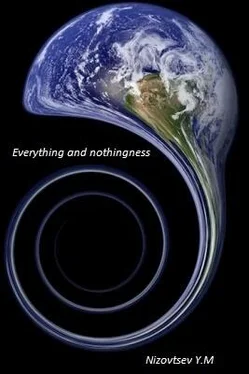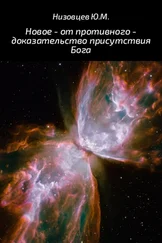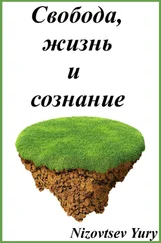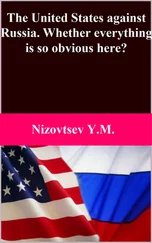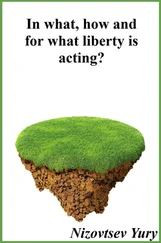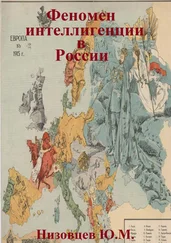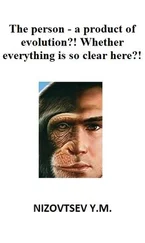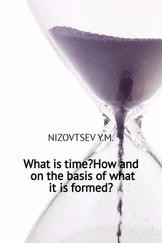Юрий Низовцев - Everything and nothingness
Здесь есть возможность читать онлайн «Юрий Низовцев - Everything and nothingness» — ознакомительный отрывок электронной книги совершенно бесплатно, а после прочтения отрывка купить полную версию. В некоторых случаях можно слушать аудио, скачать через торрент в формате fb2 и присутствует краткое содержание. Издательство: Array SelfPub.ru, Жанр: Философия, История, История, История, beginning_authors, Философия, Биология, Химия, Математика, Физика, Религиозная литература, Религиозная литература, на русском языке. Описание произведения, (предисловие) а так же отзывы посетителей доступны на портале библиотеки ЛибКат.
- Название:Everything and nothingness
- Автор:
- Издательство:Array SelfPub.ru
- Жанр:
- Год:неизвестен
- ISBN:нет данных
- Рейтинг книги:5 / 5. Голосов: 1
-
Избранное:Добавить в избранное
- Отзывы:
-
Ваша оценка:
- 100
- 1
- 2
- 3
- 4
- 5
Everything and nothingness: краткое содержание, описание и аннотация
Предлагаем к чтению аннотацию, описание, краткое содержание или предисловие (зависит от того, что написал сам автор книги «Everything and nothingness»). Если вы не нашли необходимую информацию о книге — напишите в комментариях, мы постараемся отыскать её.
Everything and nothingness — читать онлайн ознакомительный отрывок
Ниже представлен текст книги, разбитый по страницам. Система сохранения места последней прочитанной страницы, позволяет с удобством читать онлайн бесплатно книгу «Everything and nothingness», без необходимости каждый раз заново искать на чём Вы остановились. Поставьте закладку, и сможете в любой момент перейти на страницу, на которой закончили чтение.
Интервал:
Закладка:
Without the internal, i.e. without consciousness in the person, beingness for the person, as cognition, is absent – about this Heidegger also ponders: “If one reflects upon this relationship of Being, an entity called “Nature” is given proximally as that which becomes known. Knowing, as such, is not to be met in this entity. If knowing “is” at all, it belongs solely to those entities which know. But in those entities, human-Things knowing is not present-at-hand. In any case, it is not externally ascertainable as, let us say, bodily properties are. Now in as-much as knowing belongs to these entities and is not some external characteristic, it must be “inside”” [4, p. 87].
Any living being senses the world in own way, according to the sense organs which it possesses. This fact is realized by Heidegger and he raises a question about the possible subjectivity of the world: “Is “world” perhaps a characteristic of Dasein's Being? And in this case, does every Dasein “proximally” have its world? Does not “world” thus become something “subjective”. How, then, can there be a “common” world “in” which, nevertheless, we are? And if we raise the question of the “world”, what world do we have in view? Neither the common world nor the subjective world but the world-hood of the world as such. But what avenue do we meet this phenomenon?” [4, p. 92].
Without knowing about the true structure of Creation, about "mechanism" of its functioning, Heidegger can't answer the last question, apart statements about a polysemy of the world, its diversity that in itself is banality.
Knowledge of any subject can't be gained in full so as it is possible to go deep into it infinitely. So the truth for the person can have only essence character on the appropriate thresholds of knowing.
However truth depends, but not on the person, as such, truth depends by his consciousness, that not same, so as consciousness can exist and without human body, inasmuch consciousness too is the material formation receiving nevertheless the organs of senses into the person. Exactly single consciousness forms through the organs of senses of each person his "now", i.e. – all human world.
Therefore all representing (being) originally is for the person at all not accordance of knowledge of the reality, so as knowledge, as such, still isn't present, but it is compliance to sensations after their processing by consciousness with the advent of the spatial-temporal changing picture of life, or the current "now", formed by consciousness by means of sensations of the carrier of consciousness with direct support of single consciousness on the basis of the passive in irreversible sequence. This process is characteristic not only for the person, but also for any living being, and it occurs automatically, more precisely, outside the comprehension of this process by the person.
Only this process of formation of "now" of any living being can be considered by fundamental truth of existing for all living entities, more precisely, – its essence. But the person doesn't stop, unlike others living beings, on this "picture". He, as the being, which understands himself, with unmeasurable needs and the infinite, more precisely, intransient aspirations, wishes to learn the world and to improve the life, for what he willy-nilly should penetrate into essence of things, "extracting" from them at each level this or that truths, naturally, – the relative, or adequate only for this level. Passing different levels in cognition the being, understanding himself, broadens thereby own horizons, defines stability in things and in their order under different conditions and anyway changes the own life, and, so, changes the own consciousness.
Partially Husserl understood this, but he didn't find the best solution as soon as to ascribe full truth to the timeless: “Any truth is not a fact, i.e. aught as determinate into time. Truth, however, may have meaning that a thing exists, that there is available some state, some change occurs, etc., but truth itself is above any temporary, i.e. not meaningful to ascribe to it the temporary being, occurrence or destruction” [5, p. 55].
However the timeless is the infinite, eternal Uniform which contains everything potentially, but Uniform can manifested only in time, and not by itself. Therefore this consideration of Husserl characterizes him as the idealist believing in existence of the intelligible, the ideal, the incorporeal, but all it is possible to carry only to a non-existence or imaginations of religious consciousness.
Truth belongs to concepts by means of which human consciousness tries to estimate authenticity of the events in order to not to wallow in illusions, the false, different distortions of information that inevitably leads to the death. In fact, therefore the aspiration to truth, doing possible existence of human communities is characteristic for human consciousness. And all events can happen only in time, even, apparently, the mathematical outputs and proofs, distracted from beingness.
Truth – not a determinacy of beingness and not a condition of beingness as Husserl supposes shifting "center of gravity" on beingness. On the contrary, the beingness, surrounding us, or existing entities in general is defined by single consciousness, but " beingness" surrounding any individual consciousness, or its "now" is determined by individual consciousness by the steps of own development, each of which leads consciousness to comprehension of essences at this level of beingness; in other words, – leads consciousness to understanding by him of not many steady positions, regularities, connecting the being objects at that level, which consciousness reached – that means the comprehension by him of truths of this level of beingness.
Truth is equivalent of beingness to consciousness in experience, confirmed in every case by successes of consciousness in the use of beingness, exactly by this condition truth is determined and goes to the existence. Therefore truth corresponds to a level of development of consciousness and in this sense it is relative and truth can actually be equated to essence of a certain level and conditions of beingness in which it is comprehended.
Numerous definitions of concept of truth affects only its separate sides, but doesn't penetrate into its sense. inasmuch classical definition of truth, in which the main criterion of truth is identity of thinking and beingness, rests against the fuzzy concepts "thinking" and "beingness" which yet should be brought into accord somehow.
Nevertheless, to truth anyway only consciousness can come, "having looked" at itself, at the surrounding and, further selecting subjects, to try to bring into accord with own intentions these subjects, most likely, changing them in own highest expression, than adapting of yourself under them.
Therefore truth in the course of cognition is always specific and depends on the level of knowledge and ability to put them, i.e. it is checked by practice, as a rule, and only limited is checked by favor so how seeming pragmatically superfluous and even unwanted for this moment of knowledge and skills can "flip" the world in the sequel, whereas the aspiration to benefit, to satisfaction of the desires, determined only by conviction (belief) is downfall of the person up to level of "consumption" only the useful that is similar to the animal adaptation to the environment instead of its conversion, and it leads eventually to degradation of the person. So that Pierce too narrows concept of truth: "A true proposition is a proposition belief in which would never lead to such disappointment so long as the proposition is not understood otherwise than it was intended” [6, p.242-257].
Another definition of "the father" of pragmatism Peirce pertaining to truth: “Consider what effects that might conceivably have practical bearings you conceive the object of your conception to have. Then your conception of those effects is the WHOLE of your conception of the object” [7, p. 331-346] proposes to take into account all "conceivably practical”.
Читать дальшеИнтервал:
Закладка:
Похожие книги на «Everything and nothingness»
Представляем Вашему вниманию похожие книги на «Everything and nothingness» списком для выбора. Мы отобрали схожую по названию и смыслу литературу в надежде предоставить читателям больше вариантов отыскать новые, интересные, ещё непрочитанные произведения.
Обсуждение, отзывы о книге «Everything and nothingness» и просто собственные мнения читателей. Оставьте ваши комментарии, напишите, что Вы думаете о произведении, его смысле или главных героях. Укажите что конкретно понравилось, а что нет, и почему Вы так считаете.
